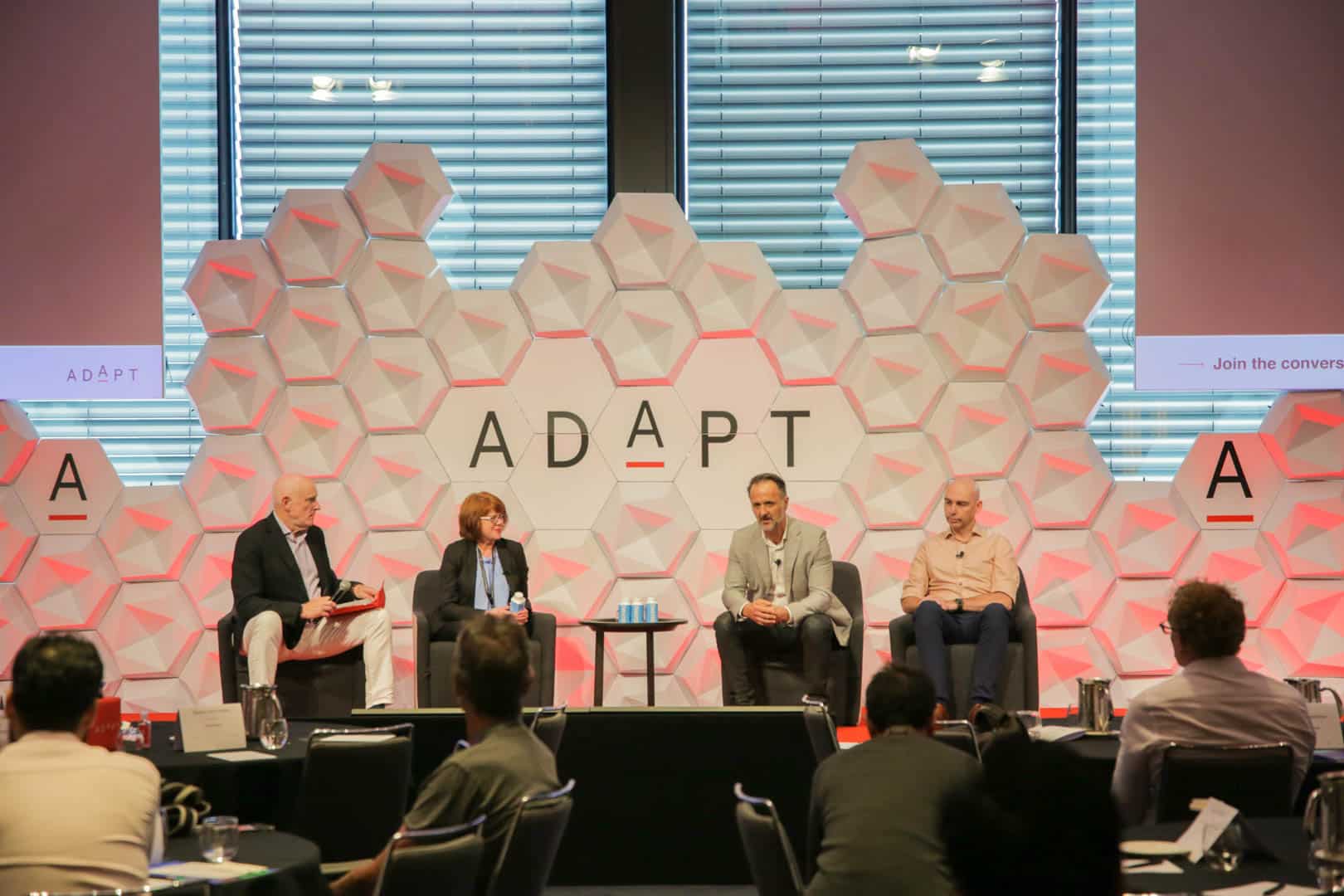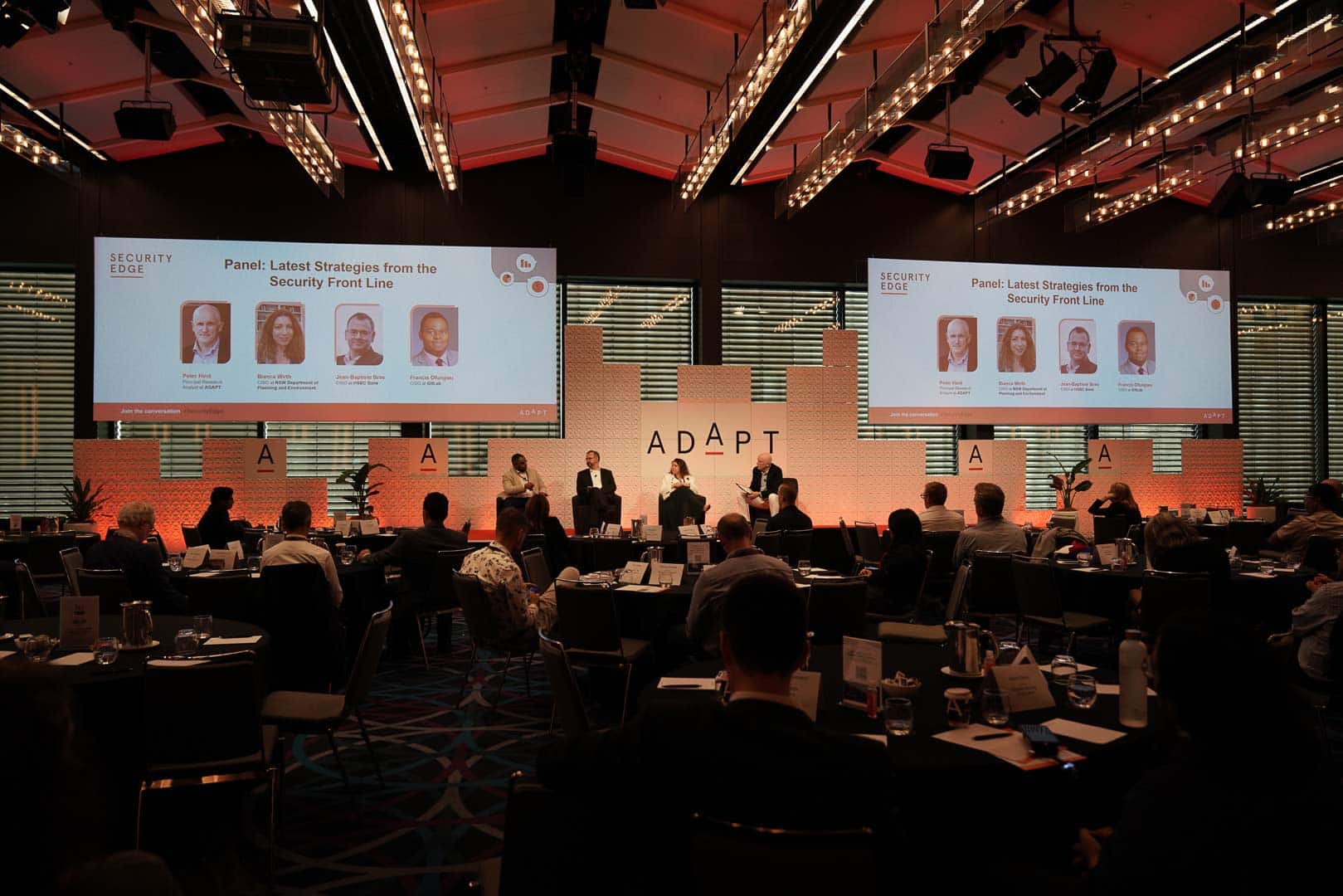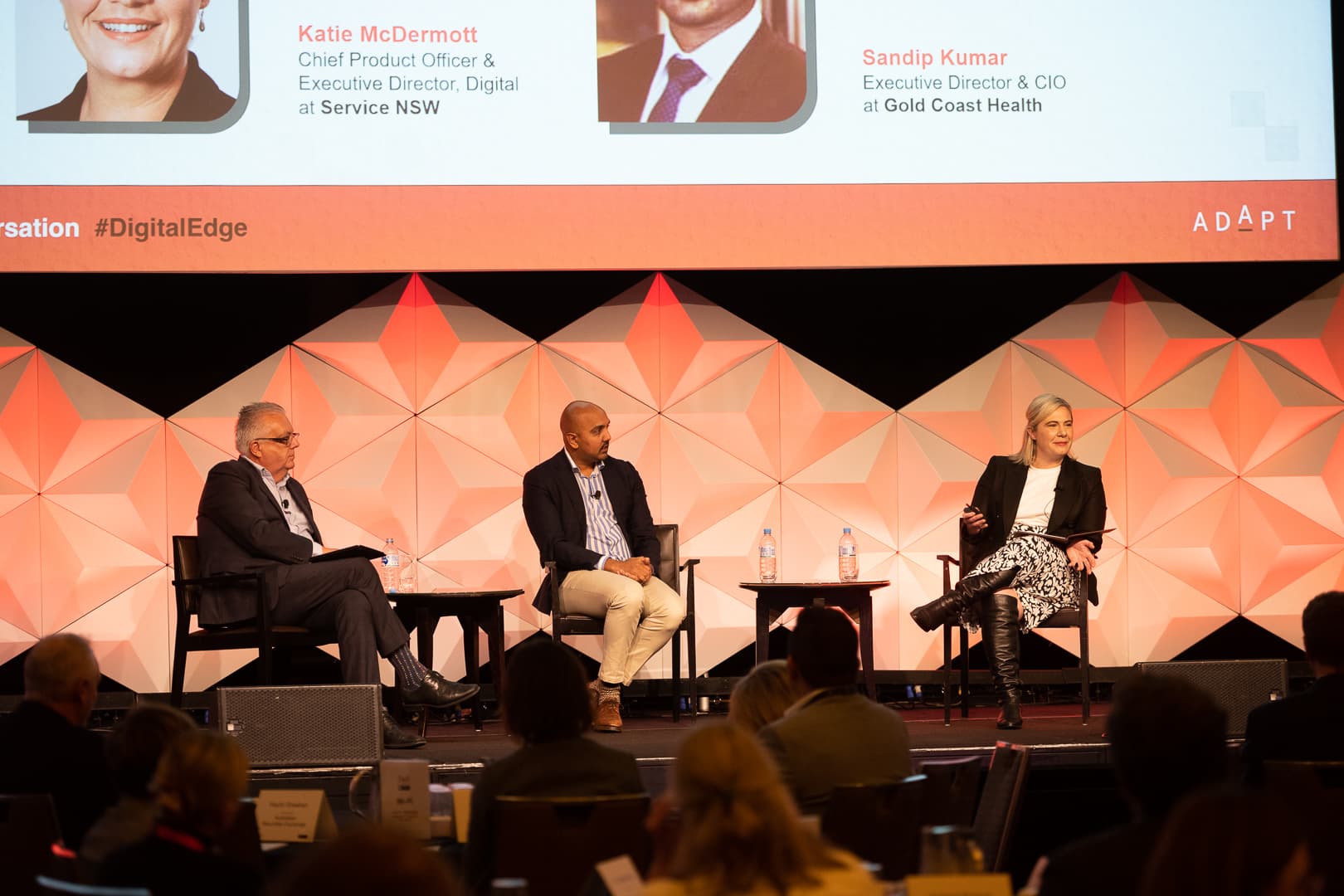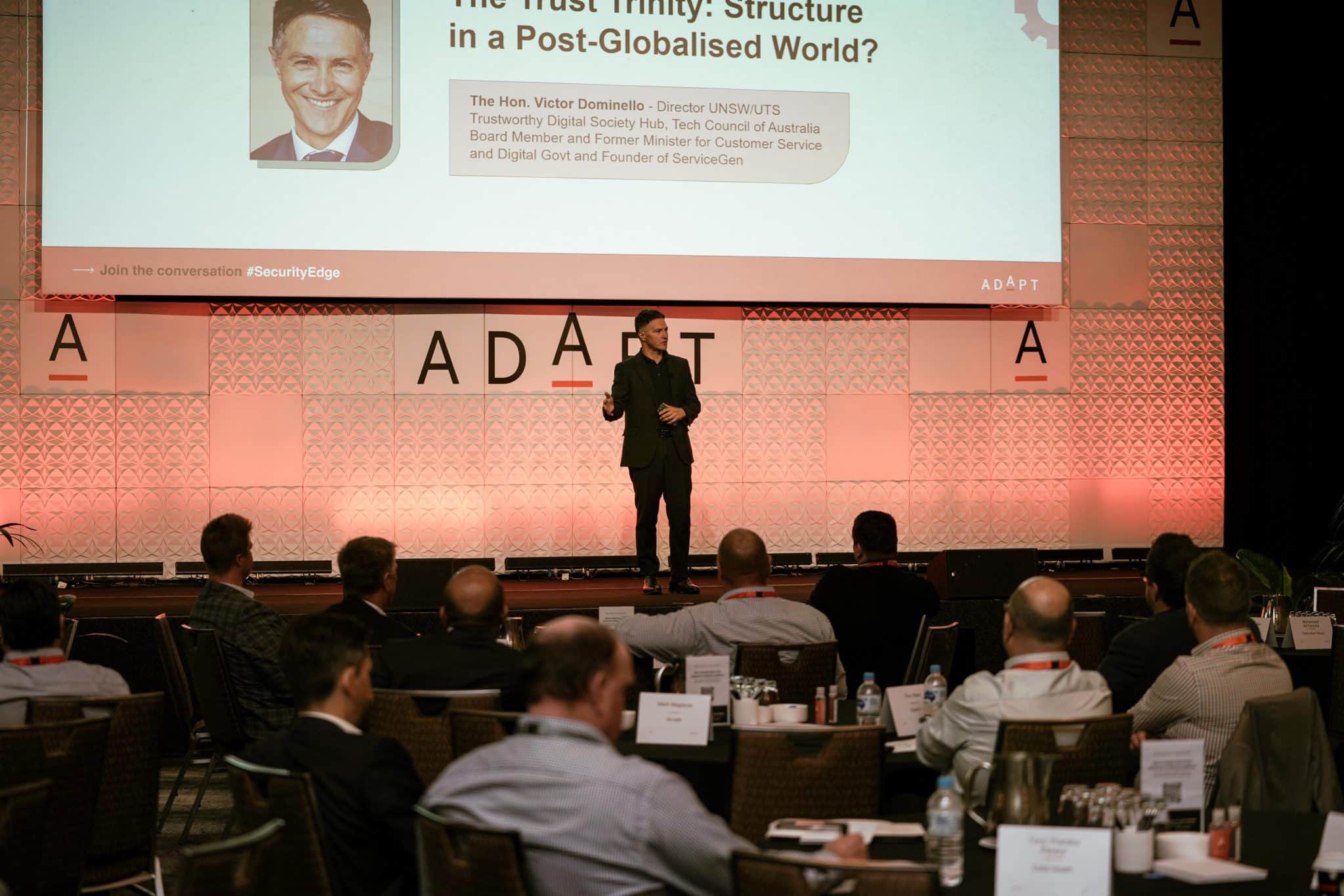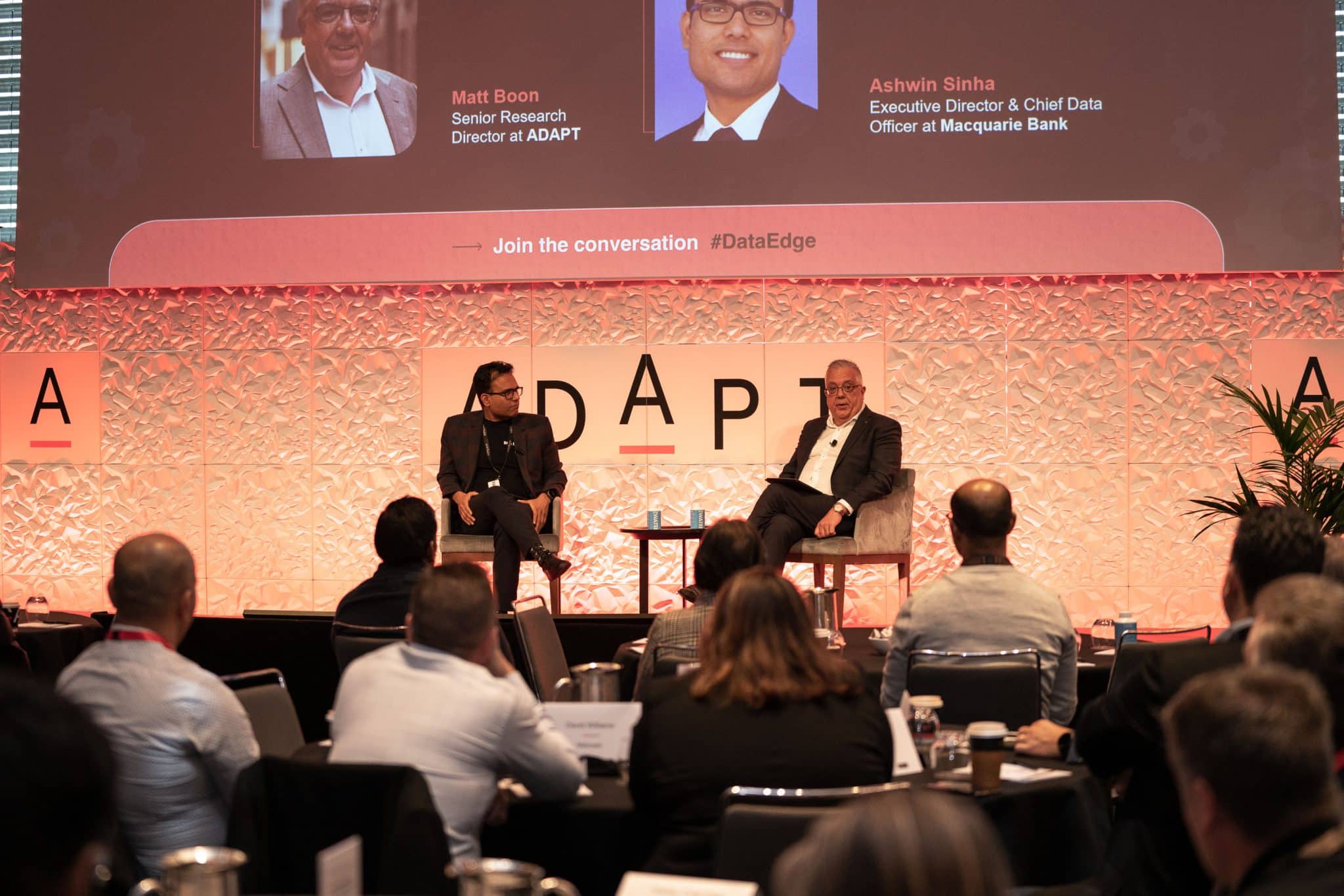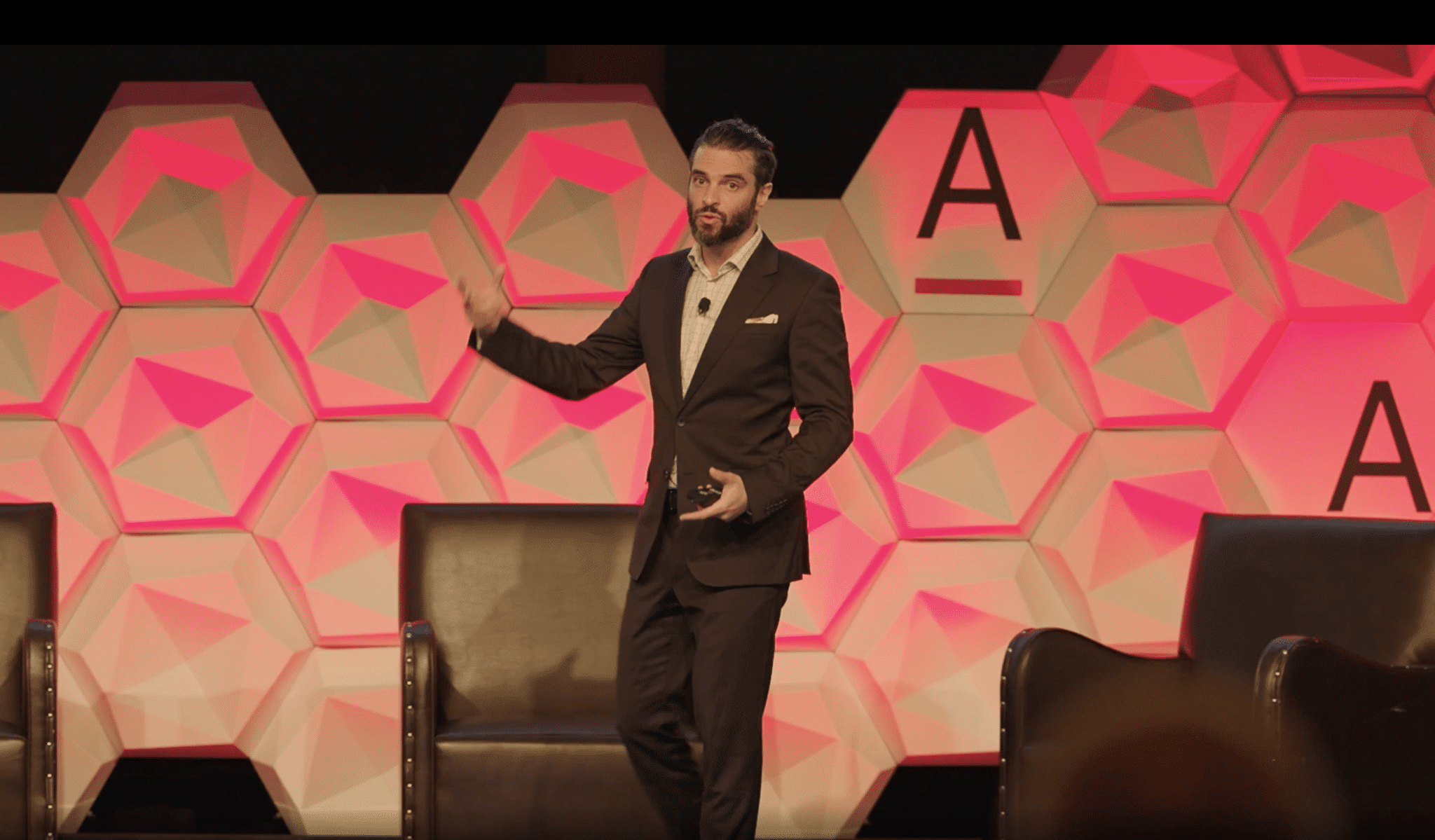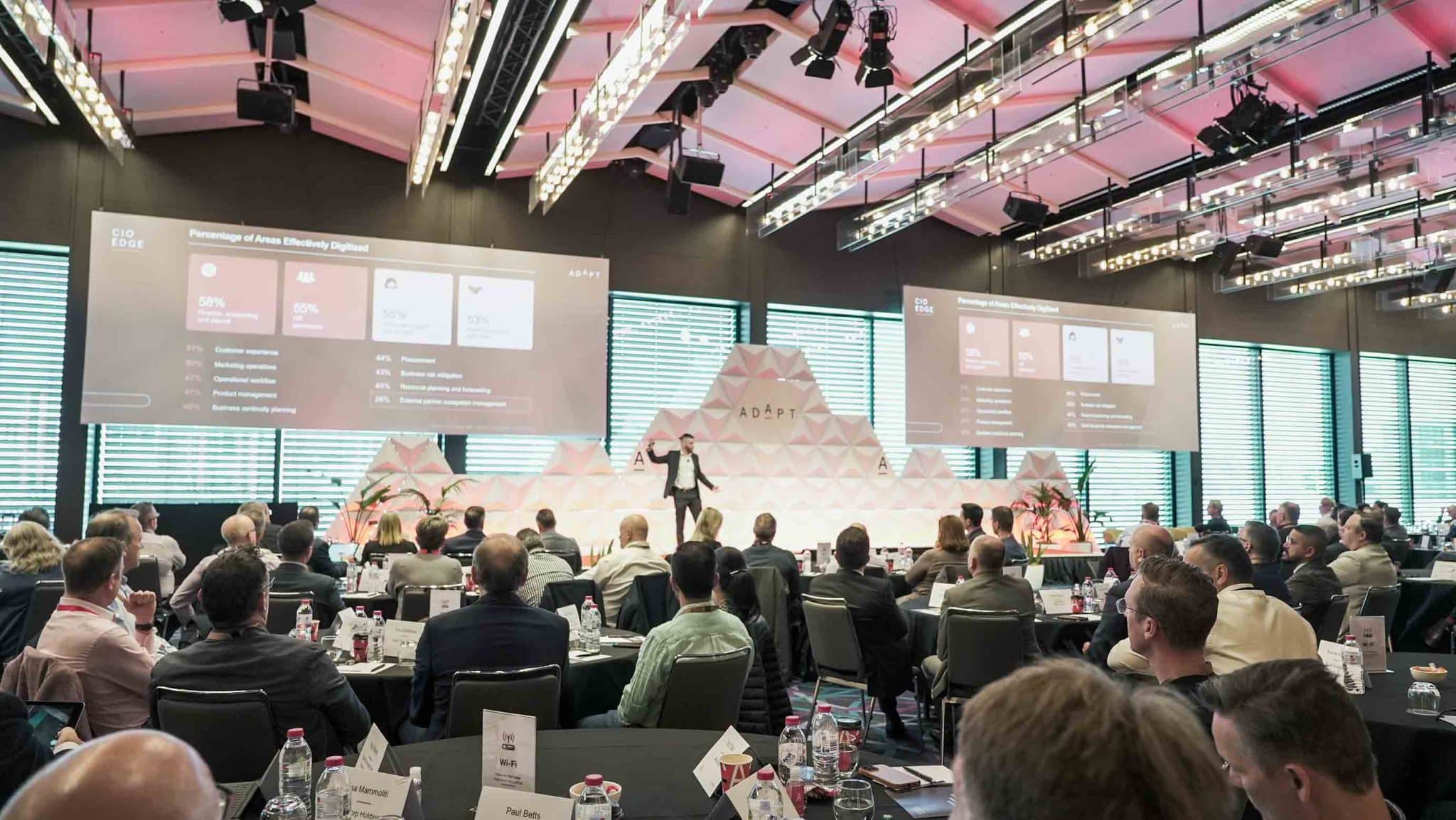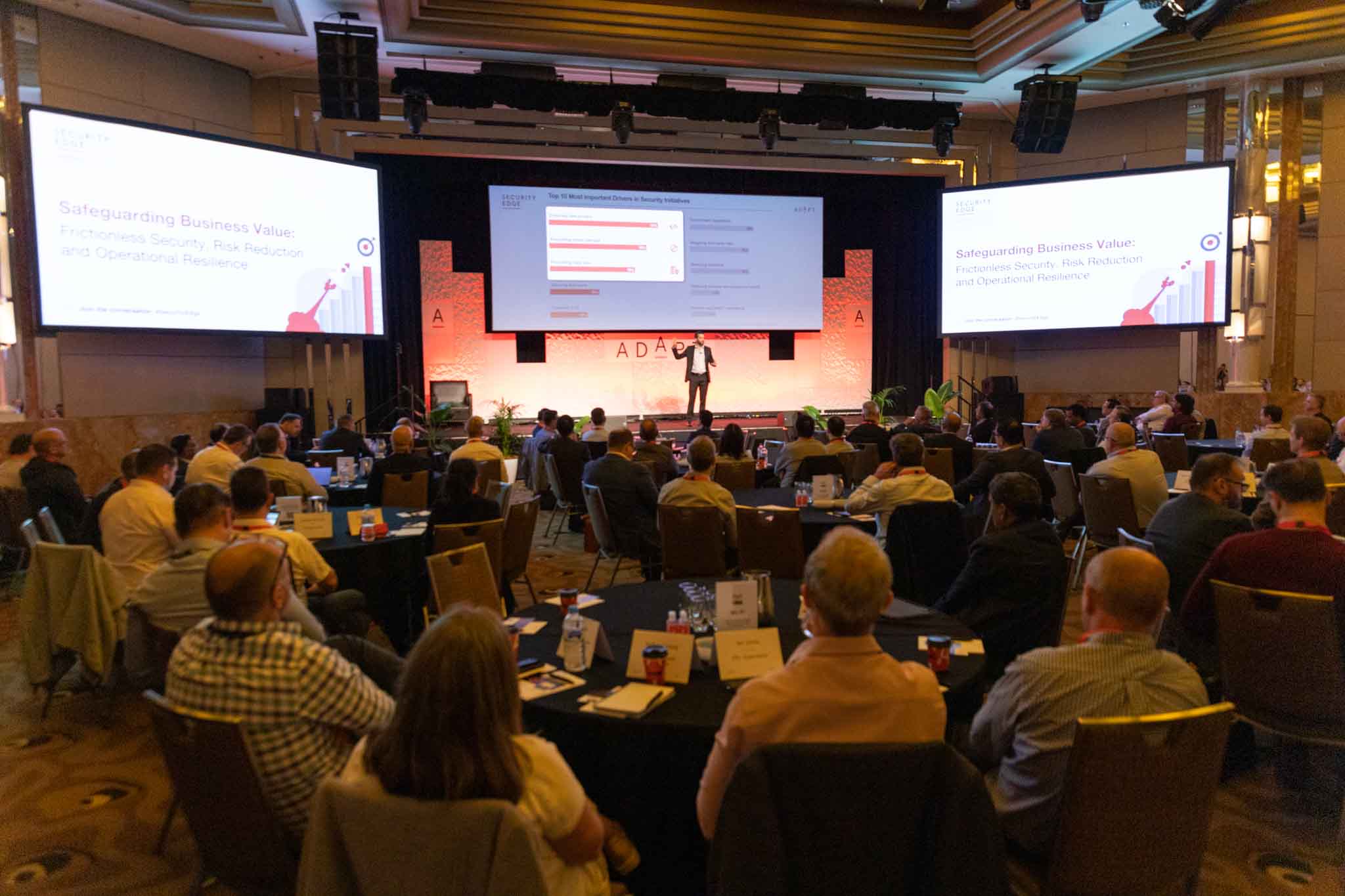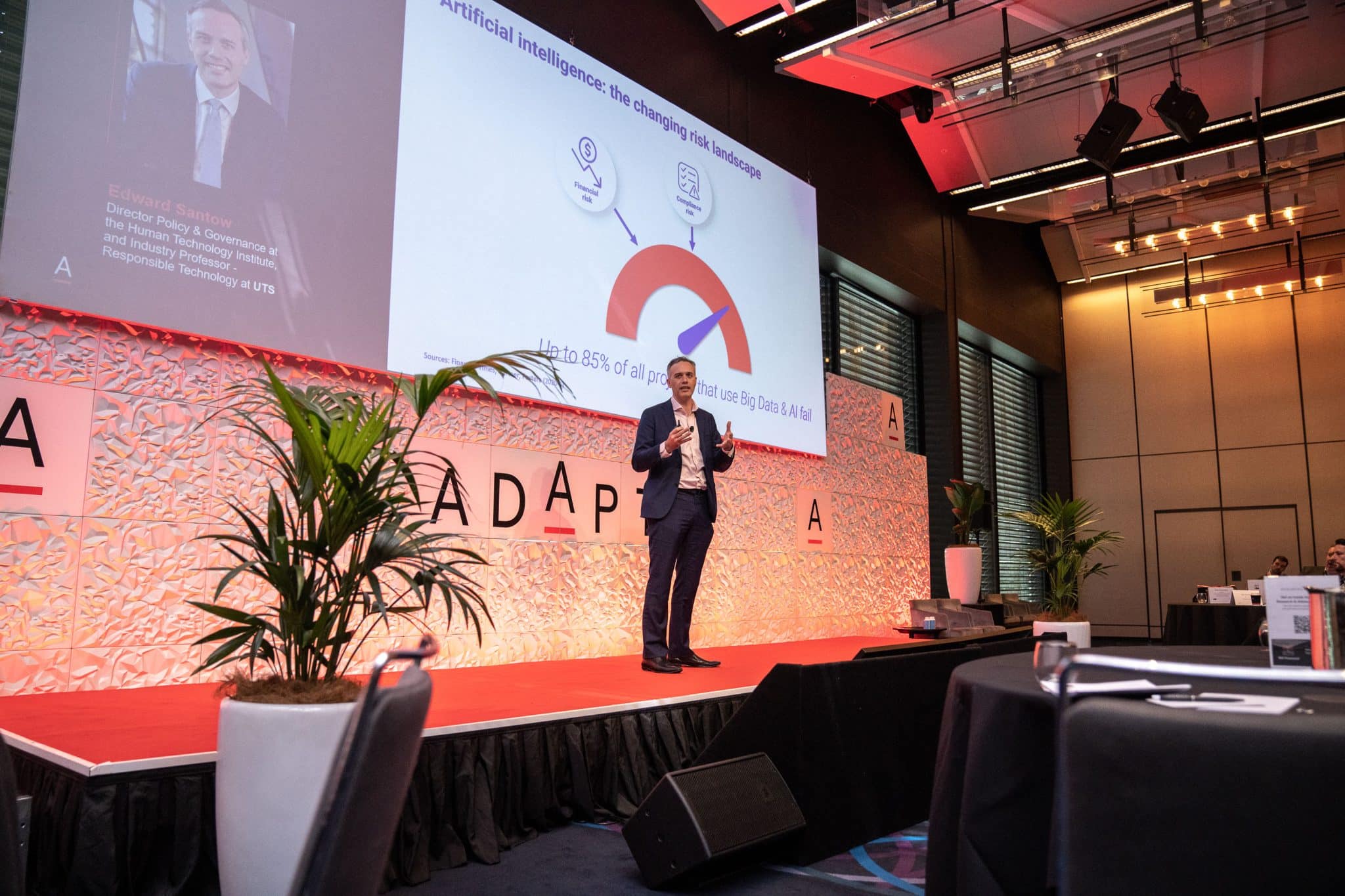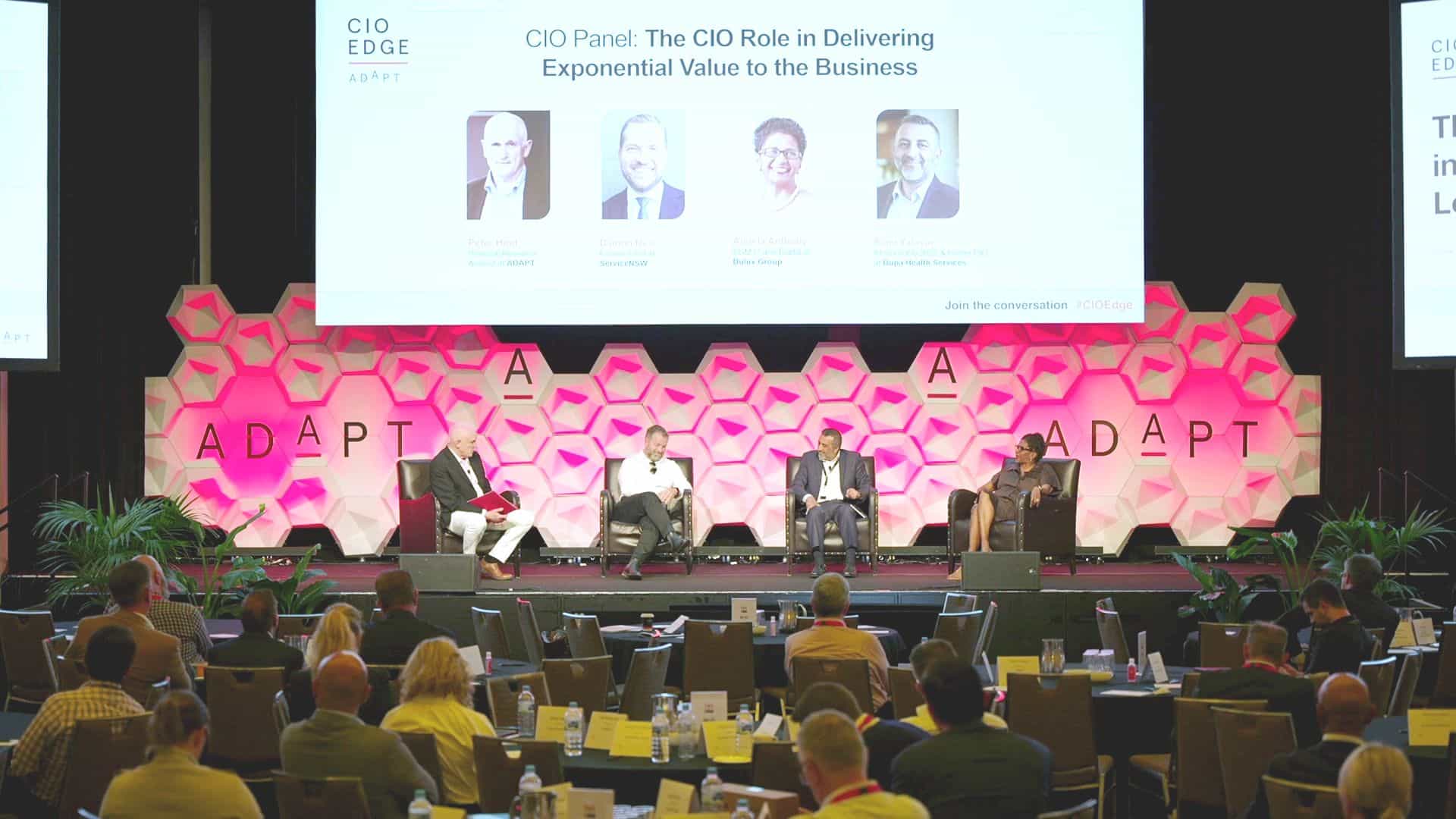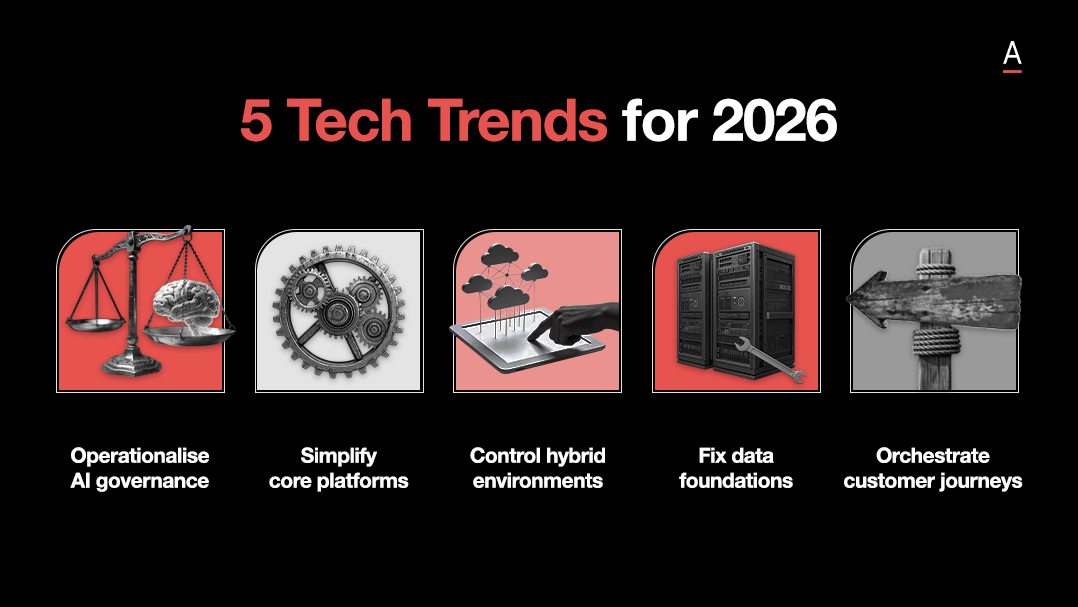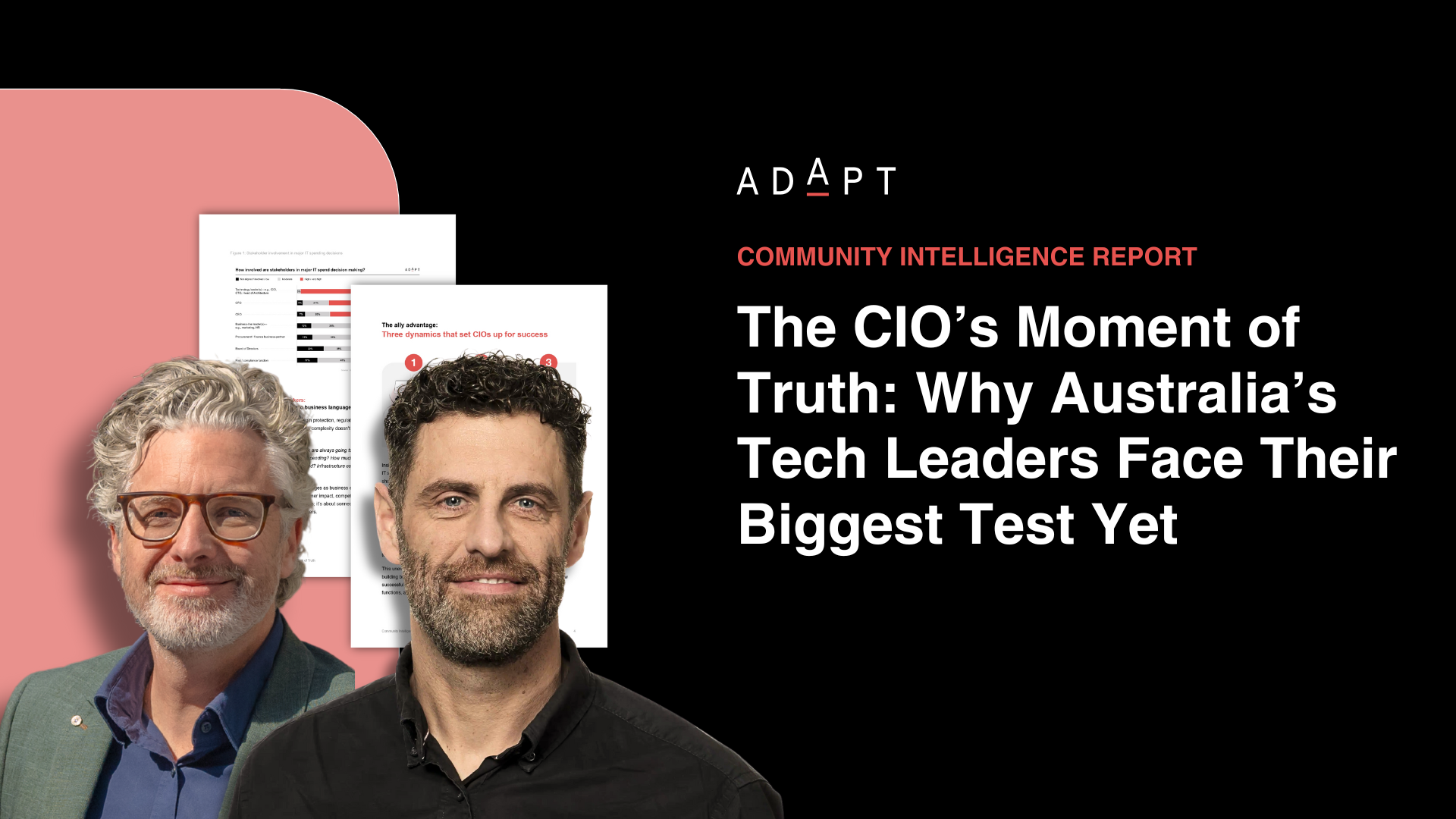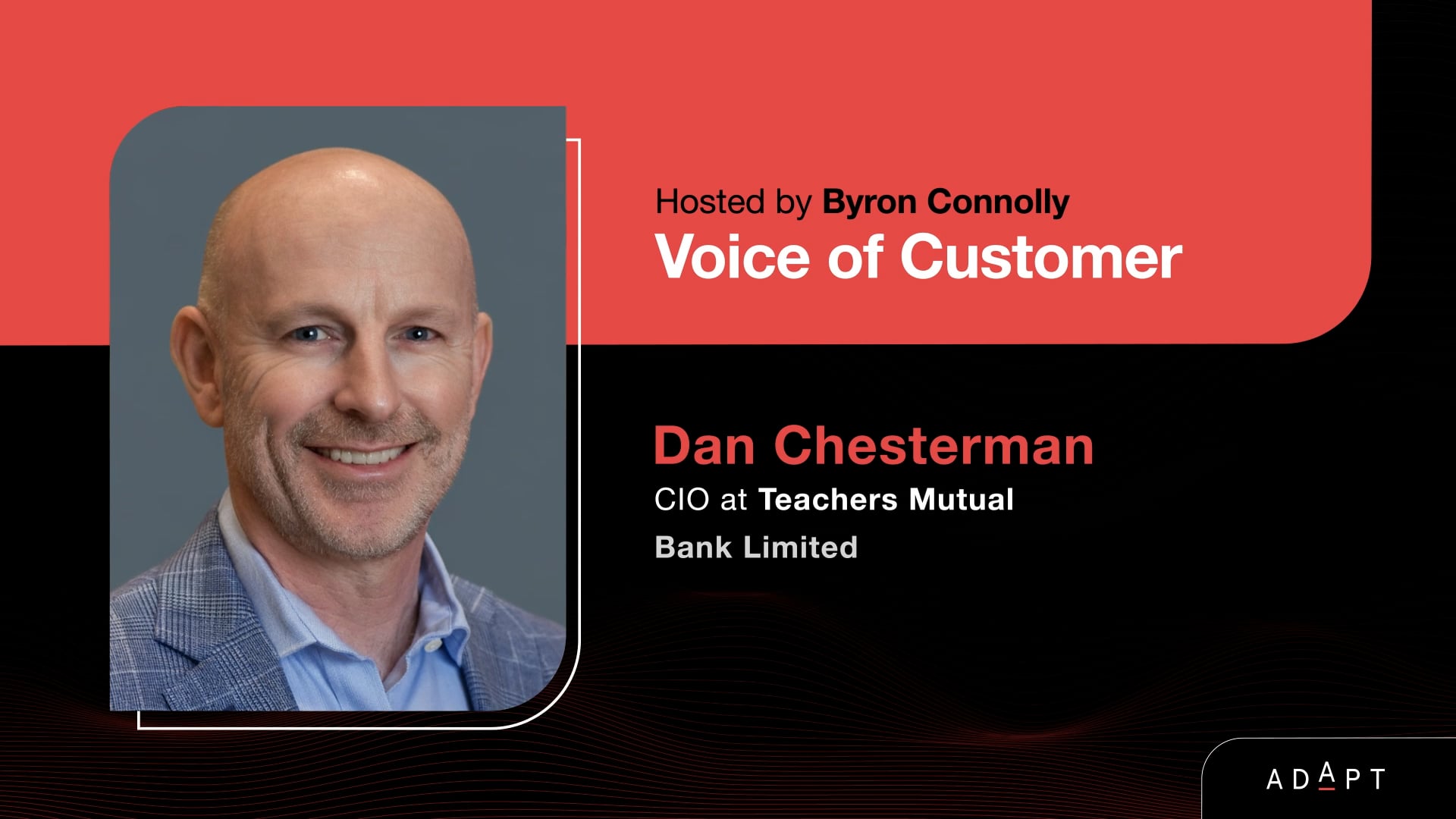Navigating Change and Transformation: Insights from ADAPT’s 2023 Edge Events’ Top 10 Presentations
Let's dive into the top 10 presentations across ADAPT's 2023 Edge events, which tackled topics such as cloud optimisation, cyber security, digital transformation, and the evolving role of AI and data science in reshaping enterprise strategies.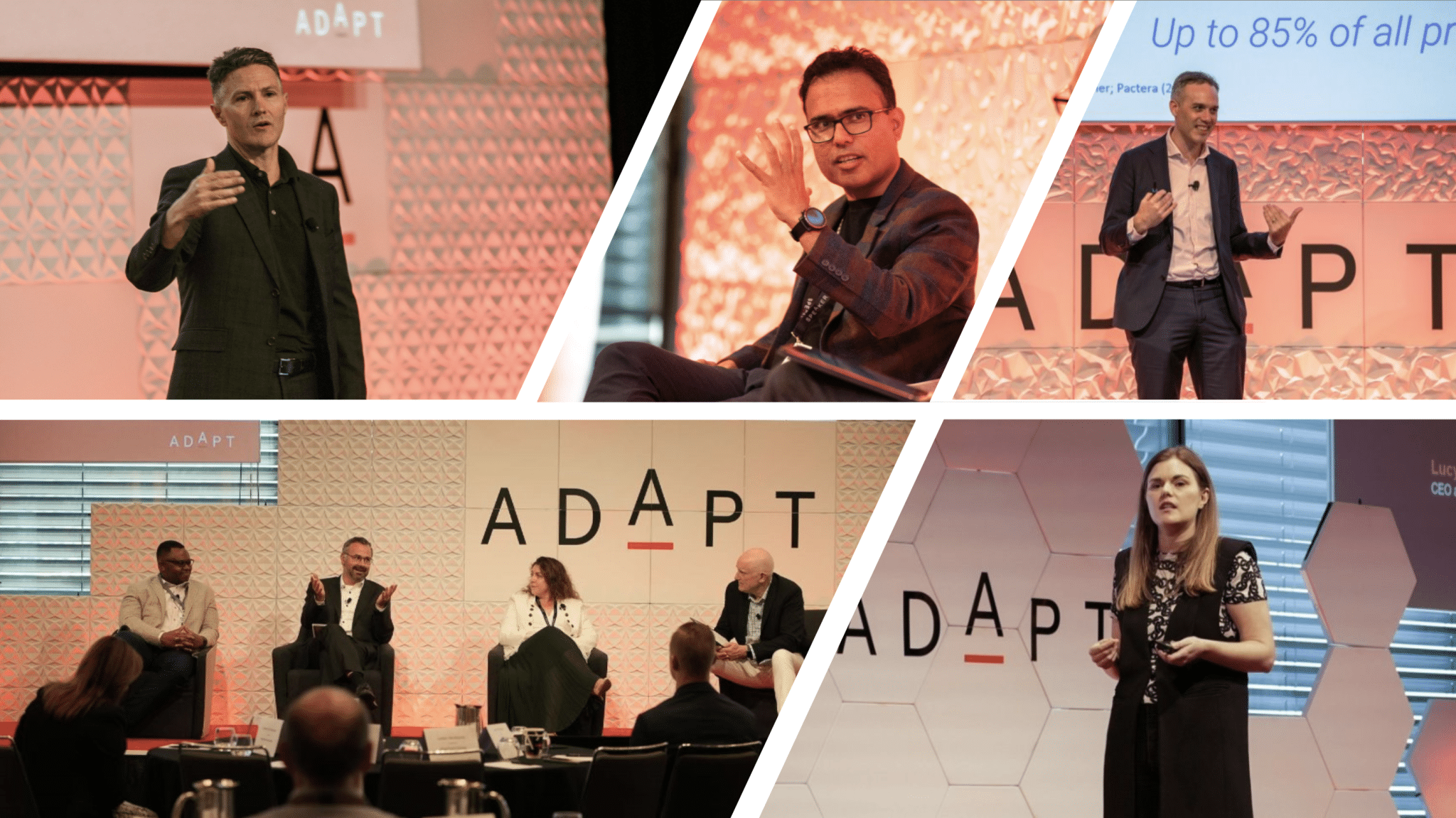
The year 2023 was marked by significant market disruptions and political upheavals, prompting a profound evolution in industries and executive roles.
Against this backdrop, ADAPT’s 2023 Edge events emerged as a crucial platform for leaders navigating these complex changes.
These events gathered industry leaders and ADAPT’s analysts to delve into the challenges and opportunities presented by the year’s unique landscape.
Let’s dive into the top 10 presentations across ADAPT’s 2023 Edge events, which tackled topics such as cloud optimisation, cyber security, digital transformation, and the evolving role of AI and data science in reshaping enterprise strategies.
1. Infrastructure Leaders Share Key Strategies for Cloud and FinOps Excellence
In an ADAPT Connected Cloud & DC Edge panel discussion, experts explored the multifaceted process of cloud optimisation and building resilient IT and FinOps in Australia.
The panel, featuring ADAPT’s Principal Research Analyst Peter Hind and industry leaders Lisa Asquith, Director, Technology Services at the NSW Department of Customer Service, Robert Mamone, Acting Head of Cloud & Engineering at Coles Group, and Richard King, Head of Cloud and Infrastructure Engineering at TPG, highlighted the significance of automation, efficiency, and self-service for application teams.
Richard underscored the necessity of a risk management approach for resilience, focusing on diverse scenarios like financial, operational, or security risks.
Key insights include prioritising the value derived across businesses over mere tool selection and cost considerations.
The discussion advocates for a collaborative FinOps model, integrating engineering, finance, and IT teams, demanding enhanced optimisation, engagement, and accountability.
Moreover, the panelists noted a trend towards risk aversion in finance organisations, with a potential shift towards fixed cost scenarios for more predictable budgeting.
2. Top CISOs Reveal Cutting-Edge Approaches from the Security Front Line
How do we fortify our digital defences? This crucial question drove this ADAPT Security Edge panel discussion.
The panel, with Bianca Wirth, CISO at NSW Department of Planning and Environment, Jean-Baptiste Bres, CISO at HSBC Bank, and Francis Ofungwu, CISO at GitLab, explored the complexities of contemporary cyber security.
They emphasised a secure development life cycle and empowering developers in managing vulnerabilities.
The panellists also delved into endpoint proliferation and software supply chain challenges, advocating for a strategic approach that blends observability, collaboration, and prudent AI integration to bolster digital security in an ever-evolving landscape.
3. Transforming Public Sector: Insights from Service NSW and Gold Coast Health on Scaling Digital Impact
In this ADAPT Digital Edge interview, Katie McDermott, Chief Product Officer & Executive Director, Digital at Service NSW, and Sandip Kumar, Executive Director & CIO of Gold Coast Health, shared their perspectives on digital transformation in large-scale public sector environments.
Sandip stressed educating stakeholders about digital transformation’s value, forging strong technology partnerships, and creating a culture of curiosity and learning to drive digital excellence.
Katie highlighted the journey of Service NSW, focusing on building internal software development capabilities, adopting an API-driven approach for agility, and leveraging customer feedback and real-time insights.
The key takeaways point towards a strategic focus on API-driven business models, effective storytelling for staff training, and prioritising security and reliability in the digital transformation journey.
4. Redefining Digital Trust in a Post-Globalised World
In an era where trust in digital systems is paramount, Victor Dominello, Director at UNSW/UTS Trustworthy Digital Society Hub, addressed the shift from globalisation to a world divided into trusted and non-trusted blocks in his keynote “The Trust Trinity: Structure in a Post-Globalised World?”
This change, influenced by global crises such as COVID-19 and the Ukraine conflict, brought forward the crucial role of trust, particularly regarding digital identity and verifiable credentials.
Victor asserted the importance of reevaluating trust architecture in the digital age, focusing on decentralised, interoperable digital identity systems.
These systems should empower individuals, ensure privacy, and foster transparency across states and territories.
The presentation marked a significant step towards a more secure, privacy-conscious digital world, highlighting the need for national leadership in this evolving domain.
5. Macquarie Bank’s Digital Leap: Integrating Data and AI for Ethical, Innovative Banking
During a Data Edge conversation with Matt Boon, Senior Research Director at ADAPT, Ashwin Sinha, Executive Director and Chief Data Officer at Macquarie Bank, zeroed in on the importance of transforming the bank’s data infrastructure as a critical factor in its digital evolution.
This strategic shift focused on integrating high-quality data and continuous learning to break down operational silos, promoting a cohesive approach to digital advancement.
The bank has committed to simplifying and modernising its data systems. It achieved this by streamlining data interfaces, consolidating data warehouses, and embracing cloud technology with the aim of overall simplification and modernization.
According to Ashwin, emphasising responsible AI usage, clear customer benefits, and effective stakeholder communication, particularly at the board level, are critical to addressing the growing challenges in AI and data governance.
These elements are crucial in managing risks and fostering innovation, paving the way for a more ethical and well-governed digital banking environment.
6. Benchmarking Leadership with EVR in Digital Transformation
Gabby Fredkin, Head of Data and Analytics at ADAPT, delved into how leadership is pivotal in steering the course of digital transformation, mainly through the lens of the Exponential Value Realisation (EVR) framework.
In his CIO Edge presentation, he focused on organisations’ need to embrace modernisation and digitisation, especially after significant data breaches.
A critical insight was the link between an organisation’s degree of modernisation, shown through its public cloud usage, and its effectiveness in managing IT, security, and cyber resilience.
Furthermore, Fredkin called out the importance of adopting a digital-first mindset and building teams with digital expertise.
He stressed that these factors are essential for navigating the complexities of digital transformation and unlocking exponential growth in today’s fast-evolving business world.
7. Leveraging Public Cloud in Modernised Organisations
In a world where digital agility is synonymous with business survival, ADAPT’s Gabby Fredkin pointed out a compelling trend: the most modernised organisations significantly leverage the public cloud, with 67% of their workloads in such environments.
This strategy enables more flexible and resilient IT architectures, vital for rapidly adapting to changing business needs.
Gabby’s insights, drawn from extensive research and surveys with IT leaders, highlighted the main challenges in IT delivery, including talent shortages and conflicting business priorities.
He also accentuated the importance of understanding customer needs and consistent data management in improving customer experiences, underlining the necessity of accurate data for effective decision-making.
The presentation concluded with key strategies: focusing on agility in IT through cloud migration and enhancing employee experiences to retain vital talent.
8. Combatting Cyber Security Risks with Modern Technology and Collaboration
In his Security Edge presentation, Gabby Fredkin explored the significant impact of outdated technology on cyber security.
He talked about the need for organisations to modernise and digitise, especially to counteract security threats effectively.
Gabby also pointed out that manual processes, prevalent due to outdated technology, are a substantial obstacle in managing security risks.
He advised to have a strategy that employs skilled technologists and fosters collaboration across business units to improve security perception and posture.
9. Untangling the Complexities of AI and Privacy in the Digital Era
In his Data Edge keynote presentation, Edward Santow, Director of Policy and Governance at the University of Technology Sydney, an expert in Responsible Technology at UTS, revealed the hidden complexities of AI’s use of personal data in various Australian industries.
He focused on sectors like customer service, marketing, and mining, underscoring the urgent need for legal guidance in the era of advanced technology.
Edward spotlighted AI’s multifaceted risks, including legal, financial, and reputational risks, particularly in sensitive areas like finance and personal data management.
He stressed the need for AI systems to be fair, accurate, and accountable, highlighting the pressing need for regulation to safeguard human rights and privacy in the digital age.
10. CIOs at the Forefront of Digital Transformation and Exponential Value
In this CIO Edge panel discussion, ADAPT’s Principal Research Analyst Peter Hind and experts like Damon Rees, Former CEO of ServiceNSW, Angela Anthony, EGM IT and Digital at Dulux Group, and Sami Yalavac, former CIO at Bupa ANZ, discussed the evolving role of CIOs in driving business growth and digital transformation.
They discussed the challenge of doing more with fewer resources and noted the importance of considering commercial outcomes beyond traditional risk profiles.
CIOs’ unique position allows them to influence value chain outcomes for the business and its customers.
Critical factors for success include:
- Building trust.
- Using technology as a differentiator.
- Viewing ecosystems as valuable.
- Aligning prioritisation with strategic business vision.
Effective prioritisation involves collaboration between business and technology teams and a strong understanding of the business and its customers.

























